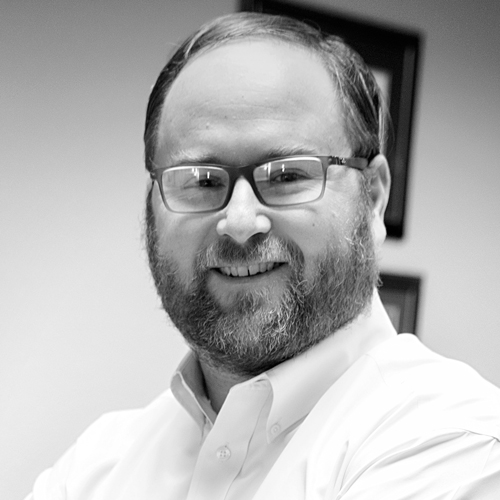Even when he was in private practice and serving as outside counsel for the medical practice management firm MGMA, Jerard Jensen, general counsel for Marshfield Clinic, felt at home in the C-suite—and the board felt good about him being there as well. So much so, in fact, that when MGMA’s CEO took another position, the company asked a surprised Jensen if he would be interested in serving as interim CEO while they conducted the search for a permanent replacement.
“I had a close role with the board and senior management, so I was already functioning in a C-suite manner, but I wasn’t expecting to be offered the position,” Jensen says. “I recall sitting in an airport when the question was put to me, and the next thing I knew, I was talking about how it was going to work. A lot of things happened very quickly.”
Jensen was interim CEO at MGMA from the fall of 2014 until the spring of 2015, when the company found a permanent CEO. He stepped back and resumed his former role with the company briefly, but at that point he had already decided he was going to take a job as general counsel with Marshfield. His experience in the C-suite heavily influenced the decision to go in-house.
“I really enjoyed the CEO role,” he says. “I think that’s a big part of why I moved into an inside general counsel position. You are an inside C-suite executive and as much a businessperson as a lawyer. Your legal skills are used in that context from a business perspective, rather than the pure lawyering skills you use when you’re representing a client. I like looking at business and organization results as opposed to simply legal results.”
Taking the helm of legal for the vast delivery system, which has been prominent in Wisconsin since the early twentieth century, was a head-spinning experience at the outset, something Jensen characterizes as “immersion acclimation.” He took the seat of the interim general counsel and promptly got to work in a culture he knew little about.
“I expect my outside counsels to have a clear idea of what my organizational strategies and needs are. I don’t want detached opinions; I want somebody to understand my business and to facilitate a business end for me using the legal skill set.”
“The organization has an iconic reputation, and I knew about that, but I didn’t know much about how things worked internally,” he says. “Those first weeks were very long days with a lot of meetings. I had to meet my own staff for starters, and then I had to spread out and get to know dozens of senior leaders. I had to immerse myself in things structurally and organizationally at first and then begin to understand the culture. Learning on the run is challenging, but it was also exhilarating.”
In spite of his C-level position, Jensen recognized that he was also the new kid in town and made sure not to interfere with preexisting dynamics in the organization, which had been working quite well; there was no need to fix what wasn’t broken. His staff is small, with only six direct reports: one is devoted to professional liability issues, a second handles physician/clinical issues and regulations, a third deals with facilities contracts, and a fourth works with IT and intellectual property matters.
As the hospital begins the push to expand its scope by acquiring St. Joseph’s hospital and bringing acute care to its Eau Claire facility, the plan is to grow the team. In the meantime, they use outside counsel for advice on antitrust law, employment issues, and a host of other areas that fall outside the scope of the team’s expertise.
“As general counsel, I have the obligation to decide how the legal discipline is applied to secure our business objectives, but I can’t even begin to think about doing all that’s necessary to accomplish those ends,” he says. “I need to rely on other inside counsel here, as well as outside counsel. I expect my outside counsels to have a clear idea of what my organizational strategies and needs are. I don’t want detached opinions; I want somebody to understand my business and to facilitate a business end for me using the legal skill set.”
Jensen says that the major challenges he sees facing Marshfield—and any healthcare organization for that matter—are regulatory issues and industry consolidation. He believes that changes in internal business processes due to regulatory changes will be more difficult than the changes with how organizations interact with government. In addition to handling all that compliance, legal will be at the forefront of the vertical integration of care delivery, getting there from the old system of fragmentation. As he deals with these external forces, Jensen says he isn’t done learning about the organization he joined a year-and-a-half ago.
“For the first week or so, my head was spinning, but then things settled down and I formed a perspective,” he says. “Over the next month or so, I felt pretty much at home. But I was always open to learning more, and I still am today. I know enough now to function effectively in my role, but I don’t know, with an organization like this, that I’ll ever know everything.”
“As long as you continue to remain willing to learn more, you’re in a position where you can continue to improve your performance.”


